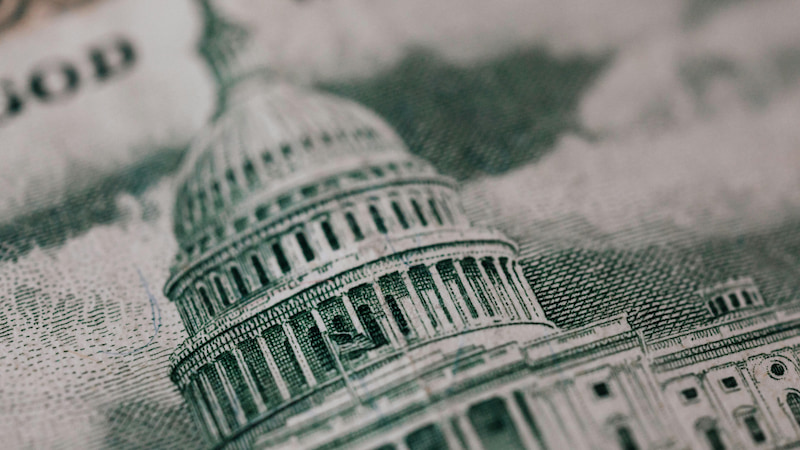Insider trading for Congress sounds like a rigged game, and it kind of is.
Most assume politicians play by the same rules as Wall Street. That’s a sucker’s bet. Congress gets a legal pass on insider trading that would land CEOs in jail.
Here’s why their trades skate free.
Congress Exempt from Insider Trading Laws
Insider trading laws nail execs for trading on material nonpublic info. Think secret mergers or earnings bombs. Congress? They’re largely exempt. Securities laws don’t fully apply to them.
Politicians hear market-moving info daily. Budget deals, policy shifts, or defense contracts spill in hearings. Trading on this isn’t illegal for them. It’s a loophole big enough to drive a tank through.
The logic is shaky. Congress writes the laws, so they carved out their own shield. Public outrage flares, but the rules stick. Ethics take a backseat to power.
It’s not total anarchy. Some restrictions exist, but they’re weak. The system trusts politicians to self-police. Good luck with that.
STOCK Act Limits Insider Trading
The STOCK Act of 2012 tried to rein this in. It bans Congress from trading on confidential info from official duties. Sounds tough, right? It’s more like a speed bump.
The Act demands transparency. Members must report trades within 45 days via public filings. But enforcement’s a joke. Violations rarely face real consequences.
Loopholes persist. Spouses or family members can trade freely, even on tips from Congress. The Act’s got teeth, but they’re dull. Politicians still play fast and loose.
Compliance is spotty. Late filings or vague disclosures are common. The SEC can’t touch them like corporate insiders. It’s a half-baked fix.
Congressional Knowledge Isn’t Always Insider
Not every tip Congress gets counts as insider info. Policy discussions or public hearings often lack the specificity to break securities laws. A senator hearing “tax cuts are coming” isn’t the same as a CEO knowing a merger is signed. Vague intel is a gray zone.
This protects them. Trading on broad economic trends or public chatter’s usually legal. The line’s blurry, and they exploit it. Precision matters in court, not Capitol Hill.
Still, some info’s red-hot. A closed-door briefing on a sanctions deal can move markets. Trading on that’s dicey, but proving it’s insider trading is a nightmare. They bank on the ambiguity.
The public’s screwed here. Regular investors can’t match Congress’s access. It’s not just unfair, it’s systemic. Ethics scream for a tighter leash.
Proving Congressional Insider Trading
Proving insider trading is a beast, especially for Congress. The SEC needs hard evidence of material nonpublic info tied to a trade. Politicians’ info often comes from public or semi-public sources. Pinning it down is like catching smoke.
Trades are traceable via STOCK Act filings. But linking them to a specific tip’s brutal. Was it a briefing, a lobbyist chat, or a news leak? Good luck unraveling that.
Intent’s another hurdle. Prosecutors must show the politician knew the info was confidential and traded anyway. Most dodge this with “I didn’t know” excuses. It’s a legal fortress.
Cases are rare. No member has been convicted of insider trading under the STOCK Act. The system is built to protect, not punish. They’re untouchable, practically.
Ethical Issues with Congressional Trading
Ethics-wise, this is a dumpster fire. Congress trading on policy intel screams conflict of interest. They’re supposed to serve the public, not their portfolios. It’s a betrayal of trust.
Voters hate it. Polls show most want stricter rules. When a senator buys defense stocks before a Pentagon deal, it looks dirty, legal or not. Perception is a career killer.
The ripple is real. Public trust in government tanks when politicians profit. Cynicism festers, democracy suffers. Ethical leadership means putting people first, not profits.
Some push reform. Bills to ban congressional trading pop up, but they stall. Power protects itself. Ethics take a backseat to politics.
Public Outrage Drives Reform
Outrage has sparked change, just not enough. The STOCK Act came after 60 Minutes exposed congressional trading in 2011. Stories of politicians dodging market crashes fueled public rage. Pressure forced Congress to act.
Social media amplifies this. X posts calling out shady trades go viral fast. Voters demand accountability, and politicians feel the heat. Transparency’s their only shield.
Reform’s slow, though. New bills propose banning stock ownership or blind trusts. They rarely pass, blocked by self-interest. Public screams don’t always move the needle.
Still, momentum is building. Younger lawmakers push harder for bans. If outrage keeps boiling, real change might hit. Don’t hold your breath.
Fixing Congressional Insider Trading
Fixing this mess starts with closing loopholes. Ban Congress from trading stocks, period. Blind trusts could work, locking their money out of reach. Half-measures like the STOCK Act don’t cut it.
Enforcement needs teeth. Fine or jail members for late or false filings. Give the SEC power to audit their trades. Without consequences, rules are just words.
Training is a must. Teach Congress what’s material and off-limits. Most claim ignorance when caught. Education shuts down that excuse.
Public pressure is key. Keep exposing trades on X or news outlets. Shame works when laws don’t. Voters hold the real power.
Conclusion
Insider trading is basically legal for Congress, and it’s a disgrace. Weak laws, loopholes, and toothless enforcement let them profit on secrets. The STOCK Act’s a flimsy patch, not a fix. Ethics and public trust get torched.
Voters and investors, stay loud. Call out shady trades, push for bans, and vote for reform. The market’s a beast, and Congress plays dirty. Demand better, or they’ll keep winning.

